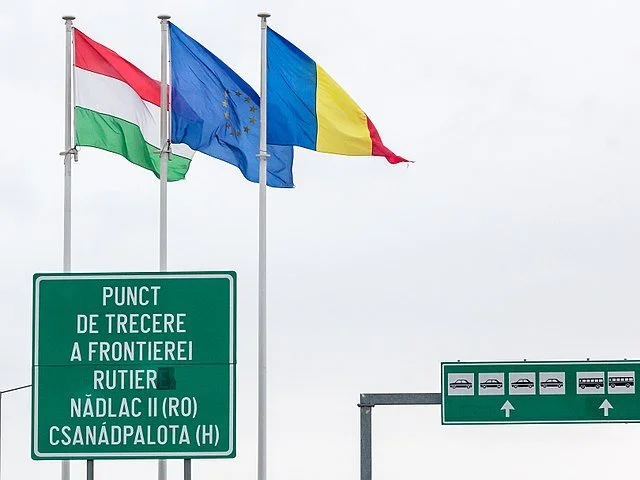Slowly Eroding the EU: What We Aren’t Paying Attention To
The Hungarian-Romanian border. Photo Courtesy: Raimond Spekking
Border controls between Italy and Slovenia have been reinstated by Giorgia Meloni’s government, suspending Schengen’s freedom of movement for 10 days. While this action can be attributed to recent attacks in Paris and Brussels, freedom of movement suspensions within the Schengen area are not new. It has been years since the area has experienced true and full free movement.
A string of suspensions in the last decade has hit the Schengen area. According to the EU Commission, 10 member states have temporarily reintroduced border controls in 2023. Some of these have been minor temporary reintroductions, such as Italy’s 10 day reintroduction; yet some have seemed permanent. France has maintained several border controls since 2015. Upon arrival in the country, passengers arriving on flights from Schengen countries, such as Portugal and Spain, have been subjected to passport checks, in blatant disregard of the values and aims of the EU.
Among the EU’s aims and values lies offering “freedom, security and justice without internal borders”. These national decisions seem juxtaposed to this. In response to challenges as diverse as human smuggling, increased migration flows, and terrorist threats, member states have traded collaboration for rash decisions. Instead of working on European institutions in order to cope with the new challenges of this age and to ensure a sustainable long-term solution, members have chosen to erode EU values from within.
Unfortunate decision-making regrettably does not stop at temporary reintroductions of border controls. In 2022, two member states blocked Romania and Bulgaria’s accession to the Schengen area, even though their accession treaties obligated them to join. Austria and the Netherlands placed their electoral chances and the need to look tough on immigration first. European unity, cooperation, and the future of our union all suffered. After having heavily invested in modernizing their border security and having EU institutions give their green light, these two Balkan countries continue to seem like outsiders in the union.
In an era of challenges to the institutions of the union as a whole, with rising euroscepticism and authoritarian tendencies, it is essential for EU citizens to visualise the benefits of living under this unique union. Excluding member states from benefits of the bloc will only deteriorate the situation. Bulgarians and Romanians are already some of the least likely to view the EU as a symbol of “freedom to travel, study and work anywhere in the EU”; a perspective highly valued by citizens in other member states. Furthermore, residents of these two countries are more inclined than the EU average to believe that their country could “better face the future outside the EU”.
This is far from being an issue unique to the Eastern Balkans. The EU needs to be visible. Using the common currency, benefiting from the Erasmus programme, and crossing borders quickly without bureaucratic challenges or checks are crucial to keeping citizens convinced the project is worthwhile. ‘We pay out millions for a bureaucratic giant in Brussels who does nothing for us’: sounds familiar, does it not?
The European Union faces a number of risks to its future. Authoritarian tendencies in certain member states, most notably Hungary, challenge the core foundations of the bloc. EU politicians and policymakers have focused on ways the EU can apply pressure on Hungary’s government and reverse the current democratic backsliding. Heavy rhetoric on how the loss of one democracy affects all member states has dominated the conversation. Yet we are losing sight of the other challenges to our unity and future.
Schengen must be fully respected. The reality of a union with no borders is inextricably tied to the promise of EU membership. These values of cooperation and unity are what make the bloc. A reality without this waters down the benefits of the EU, will make citizens question the necessity of a union, and can ultimately place the future of the European Union at great risk.

